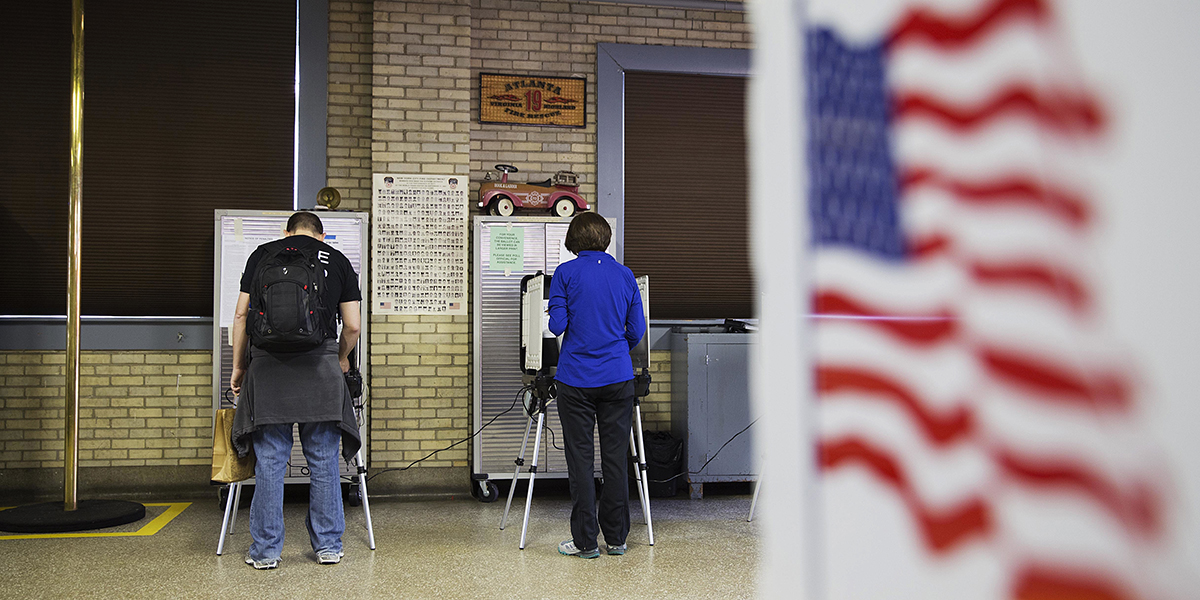Atlanta’s Northern Suburbs Looking Less Friendly For Ga. GOP

David Goldman / Associated Press
Atlanta's Northern Suburbs Looking Less Friendly For Ga. GOP
There’s a small election Tuesday in Atlanta’s suburbs, but it could be a sign of big political changes coming to the Georgia Statehouse. State Senate District 32 in east Cobb County sits inside a political district getting a lot more attention, and money right now: Georgia’s 6th Congressional District.
That race between Republican Karen Handel, and Democrat Jon Ossof, is seen as referendum on President Donald Trump, based on the kind of votes Democrats think might propel them to big wins in the 2018 midterms. The 6th District is one of the wealthiest and best educated parts of the state.
But, the less discussed Senate District 32 race is the first in a slew of contests, most in the 2018 midterms, that will likely test the grip of Georgia Republicans on Atlanta’s northern suburbs.
Compared to Mitt Romney, Donald Trump won 20 fewer percentage points in Senate District 32, according to analysis from the liberal blog Daily Kos.
The data show similar swings for at least a dozen legislative seats, most in the North Atlanta suburbs, that could mean tough reelection battles for Georgia Republicans. In a few of those seats, longtime incumbents plan to run for statewide office.
Take for example, Republican David Shafer of Gwinnett, the second ranking member of the Georgia Senate. In 2012, Romney pulled in 57 percent of the vote in Shafer’s District 48, but in 2016 Trump won only 45 percent. Shafer has filed paperwork to run for lieutenant governor, a statewide office.
Republican State Senator Hunter Hill is running for governor. He represents District 6 in Fulton and Cobb counties. Fifty-three percent of that district voted for Romney, but only 40 percent voted for Trump. Clinton actually won the district by a larger margin in 2016 than Romney did in 2012.
Senate District 32 Candidates
Republicans look likely to hold onto Senate District 32. In the first round of voting, GOP candidates won about 66 percent of ballots cast, but Democrats still think they have a chance in the runoff.
Democratic candidate Christine Triebsch spent much of the week before Election Day (May 16) in Washington D.C., chaperoning her daughter’s eighth-grade field trip.
“I don’t have a whole lot of time because I’ve got to get down to breakfast with those kids,” she told a reporter when they called.
Triebsch said she committed to the trip in September last year, before the district went up for grabs. It was also before Trump was elected, which Triebsch said inspired her to run.
“I knew that I could only make a difference at the state and local level,” she said.
Liberal women throughout the northern Atlanta suburbs have been a boost to Triebsch’s campaign. Many of them, like her, are politically active for the first time.
The GOP candidate in the race, Kay Kirkpatrick, said the demographics are still in her favor, despite the political changes in the district.
“This is still a very conservative district,” Kirkpatrick, a physician, said.
She retired just three months ago, and said her campaign is getting a boost from an army of people who have known her for years: her patients.
“When I have been going door to door or calling, or whatever I’m doing, I’m constantly running into my patients everywhere, and that’s just a great thing,” Kirkpatrick said.
Special elections tend to draw fewer voters, and that effect may be exacerbated by confusion between the contests in Senate District 32 and the 6th Congressional District.
“A lot of people don’t understand there are two elections,” Beth Wortham said after she voted early in Marietta for the Senate District 32 race.
“The number of times people have needed to go the polls for the different things this year, I think it’s going to hurt the turnout,” voter Guy Kriskie said.
If Kirkpatrick doesn’t win easily, it could mean future trouble for GOP legislators north of the Perimeter.
9(MDAxODM0MDY4MDEyMTY4NDA3MzI3YjkzMw004))








